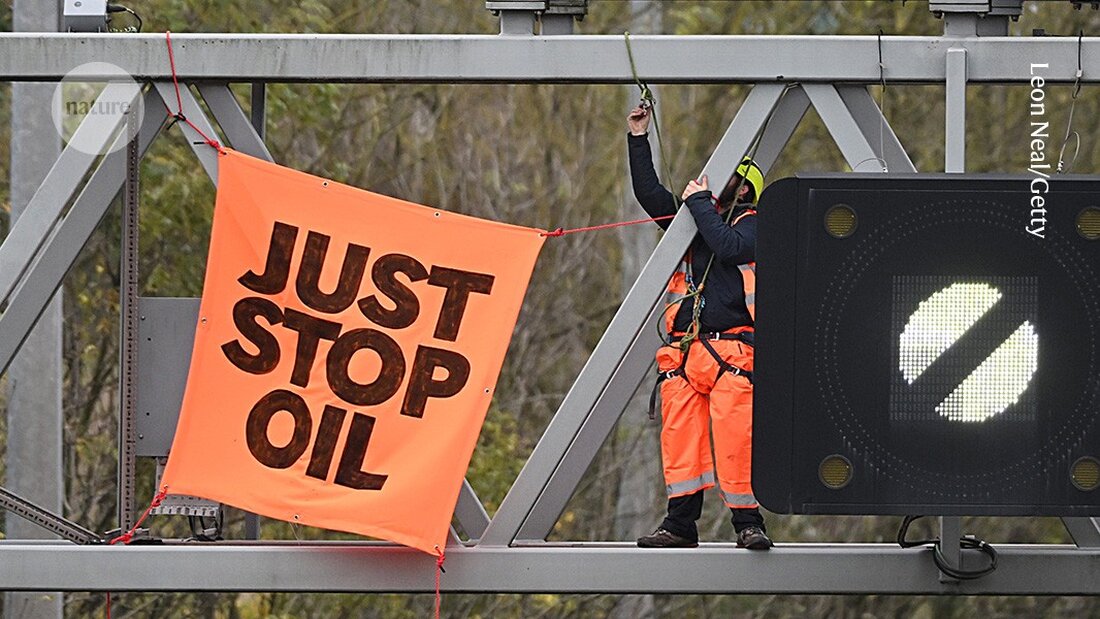Effectiveness of disruptive climate protests: A real-time survey provides answers
A study analyzes the impact of disruptive climate protests on public support for conventional environmental groups in the UK.

Effectiveness of disruptive climate protests: A real-time survey provides answers
Unconventional and high-profile climate activists
can boost public support for traditional environmental groups, according to an unprecedented study analyzing activists' closure of the UK's busiest motorway.
This study is the first to use the real, timely public response to an actual protest to determine the
“radical flank effect”
to test. This suggests that the subversive edge of a movement can make regular activists appear more reasonable. Many activists are convinced of the existence of this effect. However, to date, social scientists have only evaluated this hypothesis through surveys using artificial scenarios or by examining past examples, such as the impact on funding of the US civil rights movement.
“The debate about the impact of disruptive protests has been largely driven by people's intuitions and gut feelings,” says Markus Ostarek, co-author of the study and research director at the Social Change Lab, a non-profit organization in Cardiff that researches activism. The results were announced today
Nature Sustainability
1
published.
In 2022, activists from the UK-based climate action group Just Stop Oil forced the closure of London's M25 motorway for four days. Before the campaign, activists informed Social Change Lab staff of their plans so that the research team could gauge the mood of British residents before and after the campaign.
Researchers surveyed 1,415 people about their support for Friends of the Earth — an environmental group that favors more conventional tactics like lobbying and lawsuits — as well as their support for the government's climate policies. After the protests, the percentage of respondents who said they at least partially supported Friends of the Earth increased by 3.3% compared to before the blockade.
The increase in support for Friends of the Earth was “moderate,” but the results are potentially “quite relevant and actionable,” Ostarek says. When disruptive protests take place, moderate groups can “use these moments of high momentum to negotiate directly with decision-makers,” he explains.
However, the researchers found no statistically significant effect on support for climate-friendly proposals, such as ending exploration for new ones
fossil energy sources
by the British government.
Eric Shuman, a social psychologist at New York University in New York City, says the study is valuable because it shows that "the effects we see in experiments are consistent with what we get in reality." He and his colleagues tested the radical flanker effect by surveying people who saw fictional news articles about violent and nonviolent protests. Stronger support for the moderate environmental group was measured when a rebellious group was presented in contrast
2
.
However, other studies have shown that
disruptive protests the support
for an overall movement can reduce
3
. Although more study is needed to evaluate the idea, attention-grabbing protests can "increase the size and power of the moderate group," Shuman says.
-
Ostarek, M. Simpson, B., Rogers, C. & Ozden, J. Nature Sustain. https://doi.org/10.1038/s41893-024-01444-1 (2024).
-
Dasch, S. T., Bellm, M., Shuman, E. & van Zomeren, M. Glob. Environ. Psychol. 2, e11121 (2023).
-
Feinberg, M., Willer, R. & Kovacheff, C. J. Personal. Social Psychol. 119, 1086–1111 (2020).

 Suche
Suche
 Mein Konto
Mein Konto
